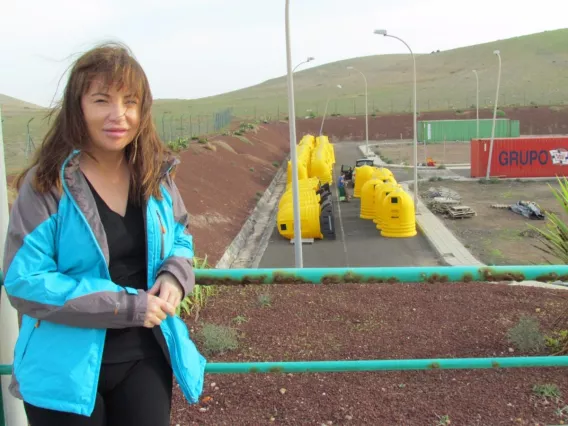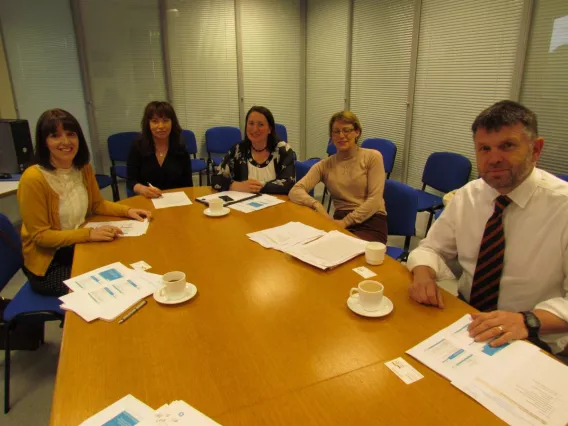Project
This project aims to evaluate the extent to which HEI campuses may support the ambitious goals set out in the 2015 Irish Government White Paper on Energy. It stressed the urgent need for active cooperation between central government and local communities in taking actions to drive down our greenhouse gas emissions, and the need to free up funding to encourage community level action.
Third level institutions exert significant impacts on the environment. They are charged with educating the leaders of the future and with developing innovative solutions to the world’s most complex problems. The emission of greenhouse gases due to human activity and the resultant global warming is arguably the greatest challenge facing mankind today. By realising the potential of university campuses to achieve greater sustainability within their buildings, as well as influence key external stakeholders, universities can play a significant role in the transition to more sustainable communities. Although some campus greening initiatives already exist, many lack clear targets or performance indicators. This research will provide policy recommendations, backed by sound scientific evidence, clear targets and refined indicators. Potential improvements will be measured and presented to policy makers for more informed decision making. By taking account of best practice case studies, this research will work with existing frameworks, refining them for greater impact. It will also enable third level campuses to achieve the status of “living laboratories” as testbeds for the most innovative approaches to achieving greater efficiency.
This project is funded by the Environmental Protection Agency, under the Sustainability Pillar of the EPA’s Research Programme 2014-2020. Website - http://www.epa.ie/ and works in collaboration with The Limerick Institute of Technology and the An Taisce Environmental Education Unit
Six-monthly technical reports are submitted to the Environmental Protection Agency and feed into six-monthly steering committee meetings, where progress updates are presented. An online presence will be achieved through the programme website as well as Facebook, Twitter and LinkedIn. As findings become available, they will be shared online. Google analytics and activity metrics of social media will measure success of online engagement. Academic success will be measured by the number of peer-reviewed publications, conference presentations, and the successful completion of an MSc. project.
Research
Transforming the theory of education for sustainable development into meaningful action is a significant challenge for policy makers and practitioners. Nevertheless, it is incumbent on universities to lead the transition to sustainability, not only in mitigating their own environmental impacts, but in influencing the wider community through outreach and sharing of best practice and knowledge. There is a diversity of actors involved in campus activities, all of whom need to be engaged in order to truly embed the principles of sustainability. In addition, sustainability must be incorporated across all activities, including operations, research and teaching. A number of initiatives have been undertaken globally to improve the sustainability of third level institutions. In Ireland, the Green Campus Programme is the most widespread initiative, with almost all Irish campuses currently enrolled. Globally, networks such as the International Sustainable Campus Network, and rankings such as the UI Green Metric ranking, provide a framework for campuses to work towards improving their environmental impact. Challenges remain however, including the difficulty in comparing progress and setting targets across diverse campus settings. Additionally, maintaining behavioural change in a setting where the largest stakeholder group i.e. students, is transient in nature brings with it both challenges and opportunities.
This project is necessary in order to provide policy recommendations that are backed by scientific evidence for improved sustainability in third level institutions. Identifying the environmental impact of campuses is the first step in enabling them to become more sustainable. Developing robust indicators and targets that are benchmarked against other campuses (but take into consideration the diversity of settings) will enable meaningful action that is both achievable and measurable. Feasibility analyses of policies and actions will provide the evidence required to promote implementation while calculation of resource efficiency returns may provide the impetus to take action. This project will take as case studies both rural and urban/suburban campuses, therefore ensuring that the recommendations presented will be relevant to a variety of campus settings. Engagement with stakeholders, including the most environmentally progressive campuses globally, will enable the development of the most innovative solutions. Effective dissemination of results is a key output of this project and synthesising recommendations for local authorities and communities will extend its impact beyond the boundaries of the university campus.
Six-monthly technical reports will be submitted to the Environmental Protection Agency and feed into six-monthly steering committee meetings, where progress updates will be presented. A final technical report will be submitted to the EPA as well as guidance notes and evidence-based policy recommendations. These policy recommendations will be synthesised to inform national policy on sustainability, education, development and other relevant plans and programmes. An online presence will be achieved through a programme website as well as Facebook, Twitter and LinkedIn. As findings become available, they will be shared online. Google analytics and activity metrics of social media will measure success of online engagement. Interviews and magazine articles will boost engagement with non-experts and campus communities; they will be measurable by their number and amount of feedback received. Academic success will be measured by the number of peer-reviewed publications, conference presentations, and the successful completion of an MSc. project. Citation of journal articles will be measured.
Resources

